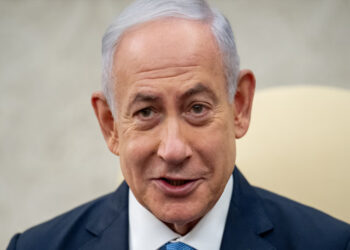The cycle of drone attacks continues following India’s missile strikes against Pakistan, with the Pakistani military having shot down 48 more Indian drones at various locations, bringing the total number of destroyed drones to 77. Investigations have revealed that a majority of these unmanned aerial vehicles were of Israeli origin.
Israel has fully backed India in its recent military aggression, quickly confirming its support after New Delhi announced missile strikes on nine locations within Pakistan.
On Wednesday, Israel’s ambassador to India, Reuven Azar, stated, “Israel fully supports India’s right to defend itself.” In a post on X (formerly Twitter), he further remarked, “Terrorists should know there is no safe haven for their heinous crimes against innocents.”
Over the past few decades, Israel and India have developed a robust, strategic, and multidimensional relationship, particularly in defense, intelligence, technology, agriculture, and cybersecurity. Although India recognized Israel in 1950, full diplomatic relations were not established until 1992.
Before this, India was a vocal supporter of Palestine. However, with the establishment of full diplomatic ties, bilateral visits, agreements, and cooperation between Tel Aviv and New Delhi increased significantly.
The relationship has deepened further since the ascension of Prime Minister Narendra Modi’s government in 2014, as shared ideological ground between the right-wing leaderships of both countries has forged a strong alliance rooted in anti-Muslim rhetoric. Israel is now India’s second-largest arms supplier after Russia.
India has acquired advanced Israeli weaponry, including the Barak missile system, Heron and Searcher drones, Spike missiles, and the Falcon AWACS systems.
During the 1999 Kargil conflict, Israel provided India with military intelligence and support. Cooperation between the infamous intelligence agencies Mossad and RAW continues, particularly in counterterrorism operations. Israeli companies also collaborate with India in cybersecurity, hacking, and surveillance technologies.
Furthermore, Israel has established Centers of Excellence in India for agricultural training, introducing technologies in drip irrigation and water management that have proven beneficial to India.
The ideological alignment between India’s BJP and Israel’s leadership (such as Prime Minister Netanyahu) is notable, particularly in their shared hostility towards Muslims and their hardline policies under the guise of national security. Their growing alliance is a point of concern for Muslim-majority nations, particularly Pakistan, Iran, and Turkey.
Pakistan does not recognize Israel and views the India-Israel partnership as a direct threat to Muslim interests. This concern is not only ideological but also rooted in factual events—Israel and India once jointly planned a strike against Pakistan’s nuclear facility in Kahuta during 1983–84.
Indian military officials secretly visited Israel to procure electronic warfare equipment aimed at neutralizing Pakistan’s air defenses. Israel proposed using India’s Jamnagar airbase for the attack, with Israeli jets to refuel in northern India before entering Pakistani airspace via the Himalayas.
However, the plot was foiled when then-President General Zia-ul-Haq received intelligence about the plan. Pakistan issued strong warnings of retaliation, prompting the U.S. State Department to caution both India and Israel against proceeding. According to the Times of India, Pakistani nuclear scientist Dr. Munir Ahmed Khan warned India’s nuclear chief Dr. Raja Ramanna in Vienna in 1983 that any attack on Pakistani nuclear installations would be met with a retaliatory strike on India’s Trombay nuclear facility. Prime Minister Indira Gandhi ultimately shelved the plan despite pressure from Indian military planners and Israeli counterparts.
Notably, just two years earlier, on June 7, 1981, Israel had carried out Operation Opera—a devastating airstrike on Iraq’s Osirak nuclear reactor near Baghdad.
Today, India-Israel defense cooperation has reached a level where some analysts believe India has become Israel’s closest strategic partner after the United States. India was the first country to publicly support Israel following the October 7, 2023 events. Hindu demonstrators in India even expressed willingness to fight alongside Israeli forces against Muslims. Reports in Indian media have also confirmed India’s provision of manpower to Israel.
A video that surfaced from Gaza on April 19 last year showed an Israeli tank bearing the Indian tricolor flag, allegedly operated by Indian mercenaries assisting Israeli forces in their campaign against Palestinians. According to Al Jazeera, India exported rockets and explosives to Israel during the Gaza conflict, and Israeli forces officially acknowledged the death of an Indian national named Ghazi Zolat fighting in Gaza.
Such cooperation is not one-sided. In return, Israel has significantly empowered India’s defense capabilities. Debates continue in Arab media about Israel’s involvement in India’s ongoing “Operation Sindoor” against Pakistan. The Israeli origin of downed drones has already been confirmed, with in-depth analysis published by Asharq, often referred to as the “Bloomberg of the Arab World.”
Israel and India’s strategic partnership, though described by experts as “complex and delicate,” is underpinned by shared interests. In sensitive regions like Kashmir, India uses Israeli-made Heron drones for reconnaissance. Since 2008, Indian forces have also used Israeli Tavor rifles. After the 2019 Pulwama attack, India deployed Israeli Spice-2000 guided bombs within Pakistani territory.
From 2008 to 2023, India accounted for 10% of global arms imports. It plans to spend at least $200 billion over the next decade to modernize its military. In the past 10 years, Israel has exported approximately $2.9 billion worth of arms to India, including radar systems, surveillance aircraft, armed drones, and missile defense systems.
Joint Projects: The Barak-8 Missile System
Israel and India are jointly developing the Barak-8 missile defense system, a next-generation system now being integrated into India’s defense infrastructure. This collaboration involves India’s DRDO and Israel’s defense industry. Israel is not merely supplying India with weapons—it is helping it achieve self-reliance in defense production through technology transfer. The goal is to boost India’s indigenous capabilities while maintaining a balance between international cooperation and national autonomy.
India is now capable of repairing and upgrading drone components and is working toward full domestic production. Since 2018, Hermes 900 drones have been locally assembled in Hyderabad under the Adani-Elbit joint venture. In 2023, the Indian military formally inducted these drones, which are now used in Kashmir, along the Line of Control, and in maritime zones. Experts describe these drones as highly capable, radar-evading, and suitable for prolonged surveillance in sensitive areas.
Israeli Support in Radar and AWACS Systems
The Israeli IAI’s EL/W-2090 “Phalcon” AESA radar has been integrated into three Indian IL-76 aircraft, converting them into Airborne Warning and Control Systems (AWACS).
Heron Mk2 UAVs
India has also deployed the Heron Mk2 drones, a more advanced model with an operational ceiling of 35,000 feet and a range of 45 continuous flight hours. Equipped with ATOL systems, SATCOM, wide fuselage, easy maintenance features, and the ability to carry varied payloads—including electro-optical cameras, radar, ELINT, SIGINT, cyberwarfare tools, and communication relays—these UAVs bolster India’s surveillance and intelligence capabilities along borders with China and Pakistan.
Loitering Munitions: Harop and SkyStriker
The Harop drone, developed by IAI, is a loitering munition designed to autonomously target enemy radar systems and air defense installations. It can circle a target and strike at the optimal time, while allowing mission cancellation. During “Operation Sindoor,” India used Harop drones to target Pakistani air defense systems, including a major site in Lahore. Additionally, India used the SkyStriker drone, co-developed by IAI and India’s Alpha Design Technologies. Inducted in 2021, the SkyStriker offers high-precision strikes with minimal collateral damage.
According to Asharq and defense analysts, India used both Harop and SkyStriker drones during Operation Sindoor.
In the ongoing aggression against Pakistan, the illegitimate Zionist state of Israel is unequivocally supporting India. This growing alliance demands a unified and unequivocal national stance from Pakistan. As JUI-F chief Maulana Fazlur Rehman urged in a recent parliamentary session, Pakistan must develop a clear and firm joint narrative addressing both adversaries—Israel and India—without making distinctions between them.






























